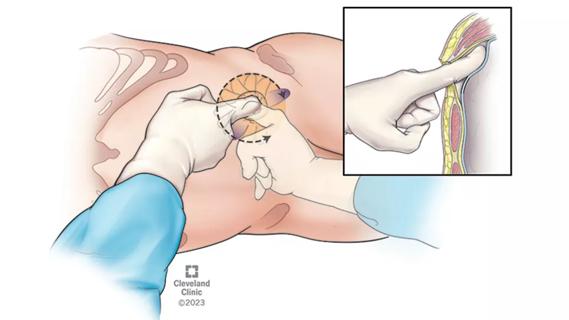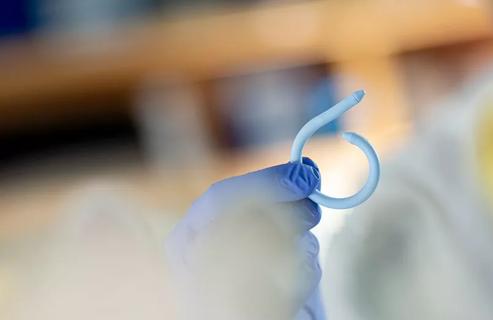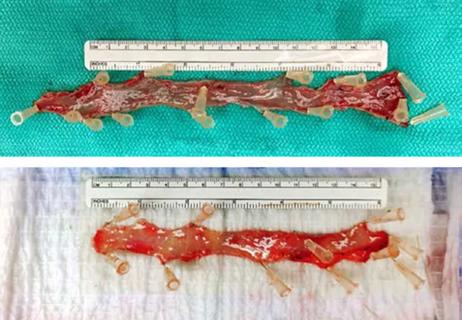Retrospective study shows SGLT-2 inhibitors may lead to worse urologic outcomes

Findings from a new Cleveland Clinic study comparing adverse urologic outcomes of sodium-glucose co-transporter-2 (SGLT-2) inhibitors to those of other diabetes medications call attention to the drug's urologic side effects.
Advertisement
Cleveland Clinic is a non-profit academic medical center. Advertising on our site helps support our mission. We do not endorse non-Cleveland Clinic products or services. Policy
While prospective data is needed to tease out the link, advising patients who are taking SGLT-2 inhibitors about the risk of urologic adverse effects could improve patients experience with these medications, the authors report in Urology.
Sodium-glucose co-transporter-2 (SGLT-2) inhibitors are a mainstay of treatment for hyperglycemia in adults with type 2 diabetes and other indications, including chronic kidney disease and heart failure.
Senior author Petar Bajic, MD, who leads the Center for Men's Health at Cleveland Clinic's Glickman Urological Institute, observed that many of the patients he was treating for overactive bladder symptoms were also taking SGLT2 inhibitors.
"We always consider diet, medical issues, and medications that might contribute to urologic symptoms," explains Dr. Bajic. "We know some drugs cause glucosuria, which can lead to osmotic diuresis, which is when sugar in the urine pulls more water out of the body and into the urine."
There is a known association between SGLT-2 inhibitors and urologic conditions such as urinary tract and genital infections; however, the effect of SGLT-2 inhibitors on other urologic symptoms has not been well characterized.
The relationship between these medications and overactive bladder symptoms in men or women was puzzling. Dr. Bajic and colleagues set out to determine if the data supported these anecdotal observations.
Study investigators extracted electronic health records from 2014 to 2022 of Cleveland Clinic patients who had been prescribed diabetes medication and received an outpatient urology referral within a two-year timeframe. Cohorts were determined based on their prescription: SGLT-2i inhibitors or another diabetes medication.
Advertisement
They compared the number of urology visits within one year, the type of urologic diagnosis and prescriptions to treat urologic diagnoses and lower urinary tract symptoms.
Patients were also grouped based on their HbA1c levels (either ≥7% or < 7%) after treatment and by sex. This strategy was to control for diabetes control to get a clearer picture of the medication's effect.
“We wanted to account for differences between the groups that might be related to how well their diabetes is controlled, so we stratified based on their A1C levels to hone in on the effects of the medication,” explains Dr. Bajic.
The team used a multivariable logistic regression to determine if SGLT-2 inhibitors use independently predicted outcomes.
The study found that 163,827 patients met their inclusion criteria. Overall, the rates of urologic side effects were low, but there were significant differences noted between SGLT-2 inhibitors and other drugs.
Treatment with SGLT-2 inhibitors was linked to an increased rate of early urologic referrals, as well as incidences of balanitis/balanoposthitis (inflammation of the penis and foreskin), overactive bladder, frequent urination, urgency, and the need for lower urinary tract medications in men with HbA1c levels at or above 7%.
The research also identified an increased incidence of urinary incontinence in women who were prescribed SGLT-2i and had HbA1c levels of 7% or above.
Among individuals with HbA1c levels below 7%, increased rates of balanitis/balanoposthitis in men and urinary incontinence in women were observed in those treated with SGLT-2 inhibitors.
Advertisement
Dr. Bajic cautions that prospective studies are needed to better understand the effects of these medications on the genitourinary tract and identify factors that increase patients' risk. However, he is hopeful that studies like this will raise providers' awareness of potential urologic adverse effects and improve patient counseling.
"SGLT-2 inhibitors play an important role in managing diabetes and heart failure, and clinicians prescribing them may not be familiar with overactive bladder and other urologic outcomes as potential side effects," he says. "It's critical to counsel patients on urologic side effects before starting a medication and involve a urologist as needed."
Advertisement
Advertisement

The low anterior access approach using the single-port robot is gaining attention within the field

Revolutionizing pediatric urology with a new, less invasive approach

What it could mean for the future of ambulatory monitoring for bladder conditions

Study reinforces the benefits of using cystatin C

Cleveland Clinic surgeons describe a new technique for harvesting a rectal mucosa graft

New study sheds light on national trends in urology residency, former CCLCM alum comments

Pediatric urologists lead quality improvement initiative, author systemwide guideline

Fixed-dose single-pill combinations and future therapies